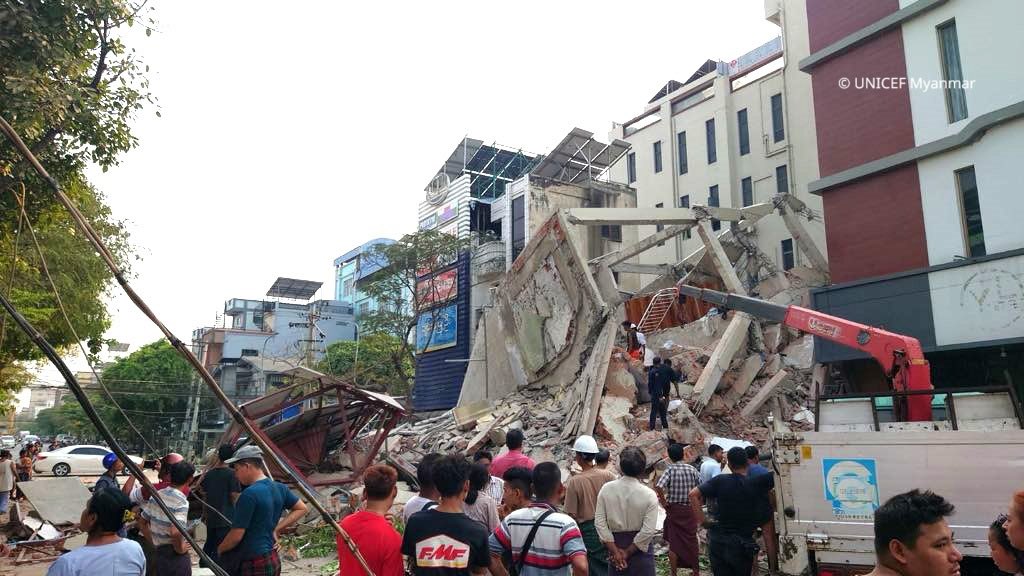ADB Approves $100M Aid Package to Support Recovery and Resilience in Myanmar
This latest package reflects ADB’s deepening commitment to humanitarian support in crisis-affected regions and its mission to serve the most vulnerable across Asia and the Pacific.

- Country:
- Myanmar
In response to the escalating humanitarian crisis in Myanmar, the Asian Development Bank (ADB) has approved a $100 million aid package from the Asian Development Fund (ADF) to deliver urgently needed relief and help build long-term community resilience. This landmark initiative follows an earlier $3 million emergency relief grant provided in the immediate aftermath of the 7.7-magnitude earthquake that struck the country on 28 March 2025.
“This $100 million aid package—ADB’s largest grant for the people of Myanmar—will deliver food, water, shelter, and medical care to families in desperate need, while also supporting long-term livelihoods, jobs, and community resilience,” said ADB President Masato Kanda.
This latest package reflects ADB’s deepening commitment to humanitarian support in crisis-affected regions and its mission to serve the most vulnerable across Asia and the Pacific.
Humanitarian Need Intensifies Following Major Earthquake
Prior to the earthquake, Myanmar was already facing a humanitarian emergency. According to the United Nations’ 2025 Humanitarian Needs and Response Plan, more than 4.3 million people were in critical need of aid and social protection. The recent earthquake worsened the situation dramatically, increasing the number of people in need to 6.3 million.
The earthquake not only claimed lives and displaced thousands but also damaged essential infrastructure including schools, homes, irrigation networks, and healthcare facilities. The need for coordinated, multisectoral support is urgent and overwhelming.
Comprehensive Support Package: Relief and Resilience
The ADB aid package is designed to address both immediate humanitarian needs and long-term community resilience. Key components of the package include:
Emergency Relief:
-
Provision of emergency shelter materials, especially for displaced families
-
Access to safe water and sanitation services to prevent disease outbreaks
-
Distribution of essential food supplies
-
Provision of medical aid, with a focus on maternal and reproductive health services
-
Psychosocial support and trauma counseling, especially for women and children
Education Support:
-
Repair of temporary learning centers
-
Reestablishment of community libraries
-
Training for local educators to support continued learning in emergency settings
Economic and Social Recovery:
-
Cash and in-kind transfers to affected households to support income recovery
-
Rehabilitation of farm roads, drainage, and irrigation systems to restore livelihoods
-
Upgrading of community water infrastructure
-
Training programs focused on climate adaptation, agriculture, and disaster risk management
This integrated, participatory “build-back-better” approach will help strengthen community resilience to future disasters and promote inclusive recovery.
Strategic Partnerships for Delivery and Oversight
Recognizing the need for fast, transparent, and effective aid delivery, ADB will partner with key UN agencies for implementation:
-
United Nations Development Programme (UNDP)
-
United Nations Children’s Fund (UNICEF)
-
World Food Programme (WFP)
These agencies will coordinate with local partners to conduct rapid needs assessments, distribute aid, and oversee reconstruction in line with ADB’s strategic goals.
ADB’s extensive prior experience in agriculture, education, nutrition, and social protection in Myanmar will guide implementation, ensuring that the aid reaches those most in need and that the delivery model is informed by lessons learned from past operations.
ADB’s Broader Role in Asia-Pacific Humanitarian Support
Founded in 1966, the Asian Development Bank is a leading multilateral institution dedicated to inclusive, resilient, and sustainable development across Asia and the Pacific. With 69 member countries—50 from the region—ADB works with governments, NGOs, and private sector partners to solve complex development challenges using a mix of innovative financing, technical expertise, and strategic partnerships.
The current crisis in Myanmar is a reminder of the growing impact of natural disasters, conflict, and economic instability across the region. ADB’s response demonstrates how financial institutions can play a central role in humanitarian recovery, while also investing in long-term development and resilience.
Looking Ahead: A Lifeline for Myanmar’s Recovery
The $100 million package marks ADB’s largest single grant to Myanmar and sets a precedent for comprehensive, adaptive humanitarian finance. As the people of Myanmar work to rebuild their lives amid compounding crises, ADB’s support will help restore dignity, protect livelihoods, and create opportunities for recovery.
“Backed by the ADF, this aid underscores our continued solidarity with the people of Myanmar and our commitment to leave no one behind,” President Kanda concluded.










